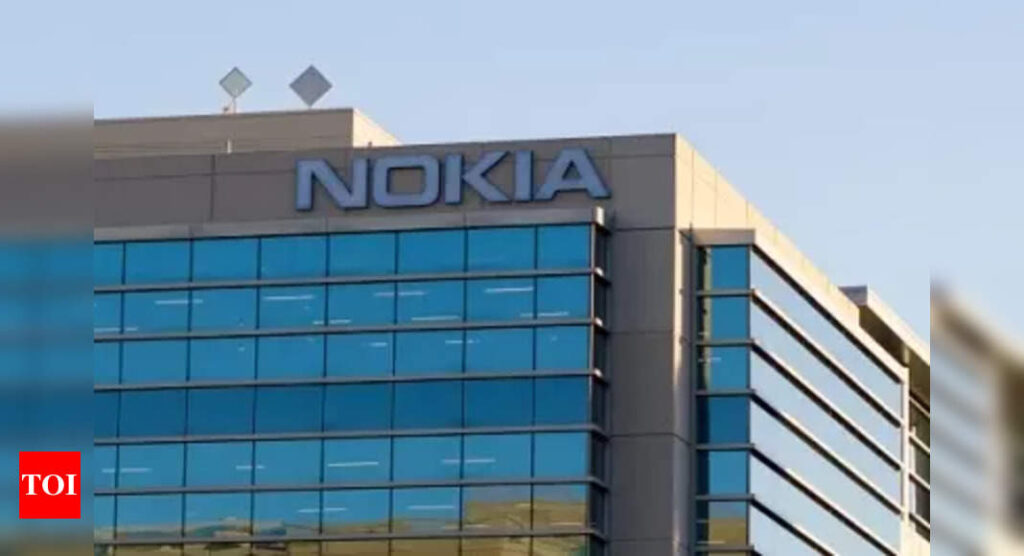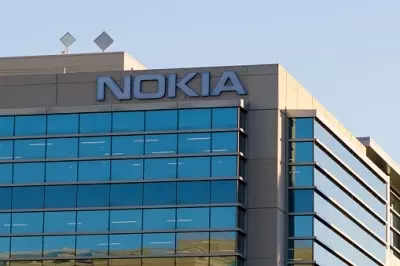[ad_1]
Nokia has announced that it has established a 6G Lab at its Global R&D center in Bangalore. According to the company, the ‘first-of-its-kind’ project aims to accelerate the development of fundamental technologies and innovative use cases underpinned by 6G technology that will address the future needs of both industry and society. The lab was inaugurated virtually by the minister of Railways, Communications, Electronics and IT, Ashwini Vaishnaw.
Nokia’s 6G lab supports ‘Bharat 6G Vision,’ introduced by Prime Minister Narendra Modi, that envisions a key global role for India in the standardization, development, and implementation of 6G technology. The lab, as per the company, will function as a platform for collaboration for industry stakeholders and facilitate the testing of innovative solutions while establishing their potential for commercialization.
Nokia’s 6G Lab includes a setup to research ‘Network as a Sensor’ technology that enables the network to sense objects, people and movement without the need for on-board sensors. “n the 6G era, ’Network as a Sensor’ has been identified as a key enabling technology that supports the vision of bringing the digital and physical worlds together. Sensing will be fully integrated into the wireless network and operate simultaneously with communication services,” said the company.
Speaking on the occasion, Vaishnaw said, “The inauguration of the Nokia 6G research lab in Bengaluru today is another step towards PM Narendra Modi’s vision of making India an innovation hub. Interesting use cases coming out of this lab will be related to transportation safety, health care and education which will be another big contribution in the entire Digital India suite.”
Nishant Batra, Chief Strategy and Technology Officer, Nokia said: “Nokia is honored to contribute towards the realization of the Indian government’s ‘Bharat 6G vision’. We look forward to collaborating with key stakeholders to help India become a major player in 6G technology development and adoption; and take its place in the global arena as a leading developer and supplier of advanced telecom technologies and solutions.”
Nokia’s 6G lab supports ‘Bharat 6G Vision,’ introduced by Prime Minister Narendra Modi, that envisions a key global role for India in the standardization, development, and implementation of 6G technology. The lab, as per the company, will function as a platform for collaboration for industry stakeholders and facilitate the testing of innovative solutions while establishing their potential for commercialization.
Nokia’s 6G Lab includes a setup to research ‘Network as a Sensor’ technology that enables the network to sense objects, people and movement without the need for on-board sensors. “n the 6G era, ’Network as a Sensor’ has been identified as a key enabling technology that supports the vision of bringing the digital and physical worlds together. Sensing will be fully integrated into the wireless network and operate simultaneously with communication services,” said the company.
Speaking on the occasion, Vaishnaw said, “The inauguration of the Nokia 6G research lab in Bengaluru today is another step towards PM Narendra Modi’s vision of making India an innovation hub. Interesting use cases coming out of this lab will be related to transportation safety, health care and education which will be another big contribution in the entire Digital India suite.”
Nishant Batra, Chief Strategy and Technology Officer, Nokia said: “Nokia is honored to contribute towards the realization of the Indian government’s ‘Bharat 6G vision’. We look forward to collaborating with key stakeholders to help India become a major player in 6G technology development and adoption; and take its place in the global arena as a leading developer and supplier of advanced telecom technologies and solutions.”
[ad_2]
Source link











More Stories
Google Maps: Three privacy features coming to Google Maps on Android, iPhones
Most-Downloaded IPhone App: This Chinese app was the most-downloaded iPhone app in the US in 2023
Ukraine’s largest mobile operator goes offline for millions of users after cyber attack